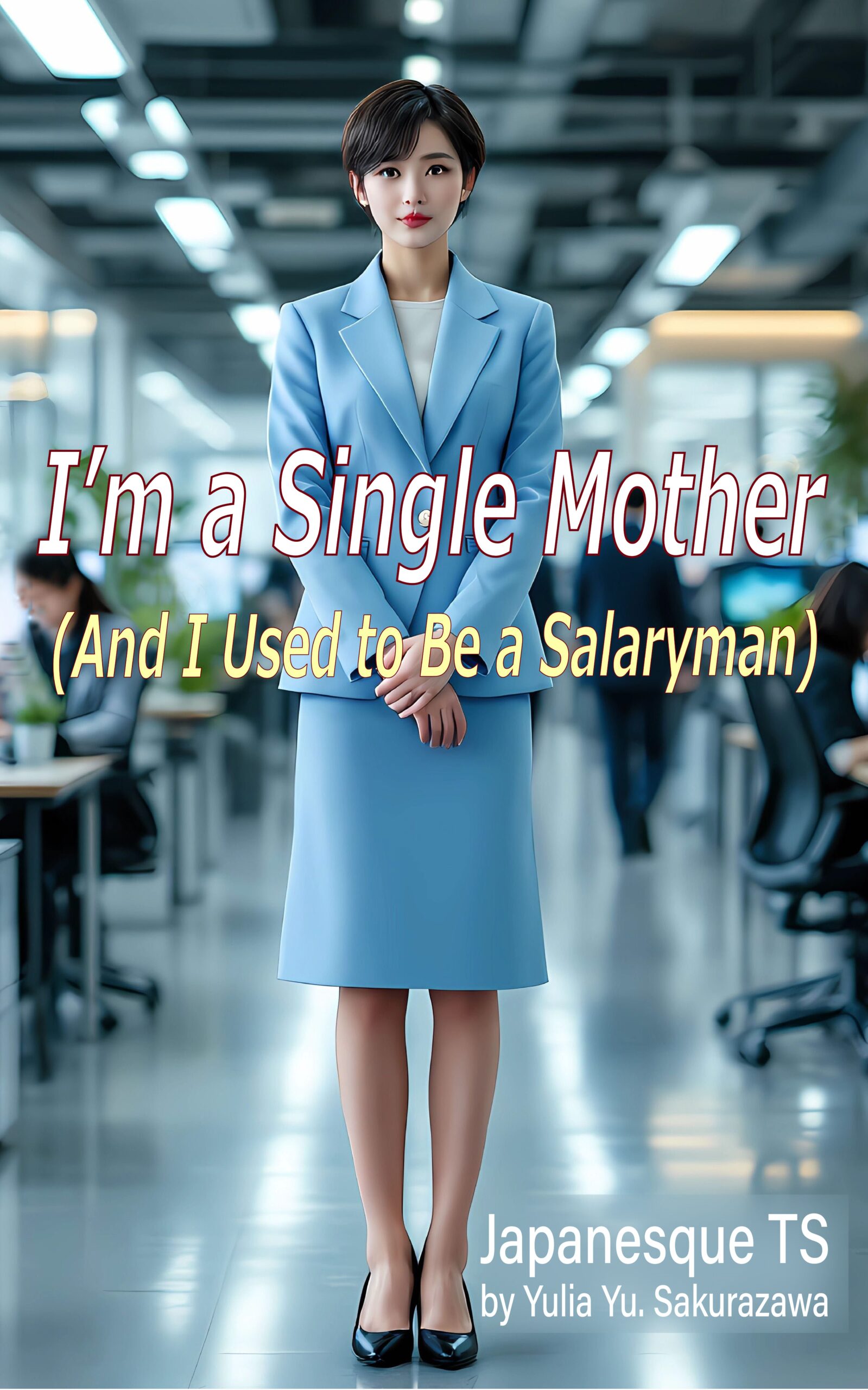
Title: I’m a Single Mother
Subtitle: (And I Used to Be a Salaryman)
Series: Japanesque TS
Author: Yulia Yu. Sakurazawa
I always try to explore the diverse and often surprising world of LGBTQ+ themes in literature, with a particular focus on my own work and the unique genre of Japanese TS fiction. As a writer, I’m drawn to stories that challenge conventional notions of gender, identity, and societal expectations. I believe that fiction can be a powerful tool for exploring the complexities of the human experience, and for fostering empathy and understanding.
My novels, while rooted in the Japanese cultural context, touch upon universal themes of belonging, self-discovery, and the search for meaning in a world that often tries to define us by narrow categories. I’m particularly interested in exploring the involuntary aspects of transformation, the ways in which external forces – whether societal pressures, workplace dynamics, or unexpected life events – can shape our identities and force us to confront who we are, and who we are becoming.
A central work in my exploration of these themes is I’m a Single Mother (And I Used to Be a Salaryman). This novel tells the story of Hinata Hayami, a young man working for a major Japanese trading company. He begins as a sogoshoku, a member of the managerial track, with all the privileges and pressures that role entails. However, a fateful encounter with a temporary worker, Yoko Hatanaka, who happens to be a single mother, sets in motion a chain of events that leads to his demotion to ippanshoku – a role traditionally held by women, and symbolized by the ubiquitous light blue skirt suit.
This is where the TS element comes into play. In the Japanese tradition, TS fiction often focuses on involuntary transformation, driven by social forces rather than physical coercion. Hinata’s journey is one of gradual, agonizing feminization, as he is forced to adapt to a new role, a new identity, and a new set of expectations. The uniform itself becomes a powerful symbol of this transformation, representing both his loss of status and his forced entry into a world he never anticipated.
But the novel is about much more than just a man in a skirt. It’s a deep dive into the challenges faced by single mothers in Japan, the often-invisible struggles of temporary workers, and the rigid hierarchies of the corporate world. It’s a story about finding unexpected connections, challenging societal norms, and discovering strength in vulnerability. It is also a story about a type of love, not necessarily a romantic one.
My goal as a writer is not to provide easy answers, but to raise questions. I want to create stories that stay with the reader, prompting reflection on the complexities of gender, identity, and the human condition. I invite you to explore my work, and to join me in this ongoing conversation. What does it mean to be a man? A woman? A parent? How do societal expectations shape our lives? And where do we find our true selves amidst the pressures and transformations we face? I hope that through my novels and my work in the TS genre, I am able to help readers see the world in a slightly different way.